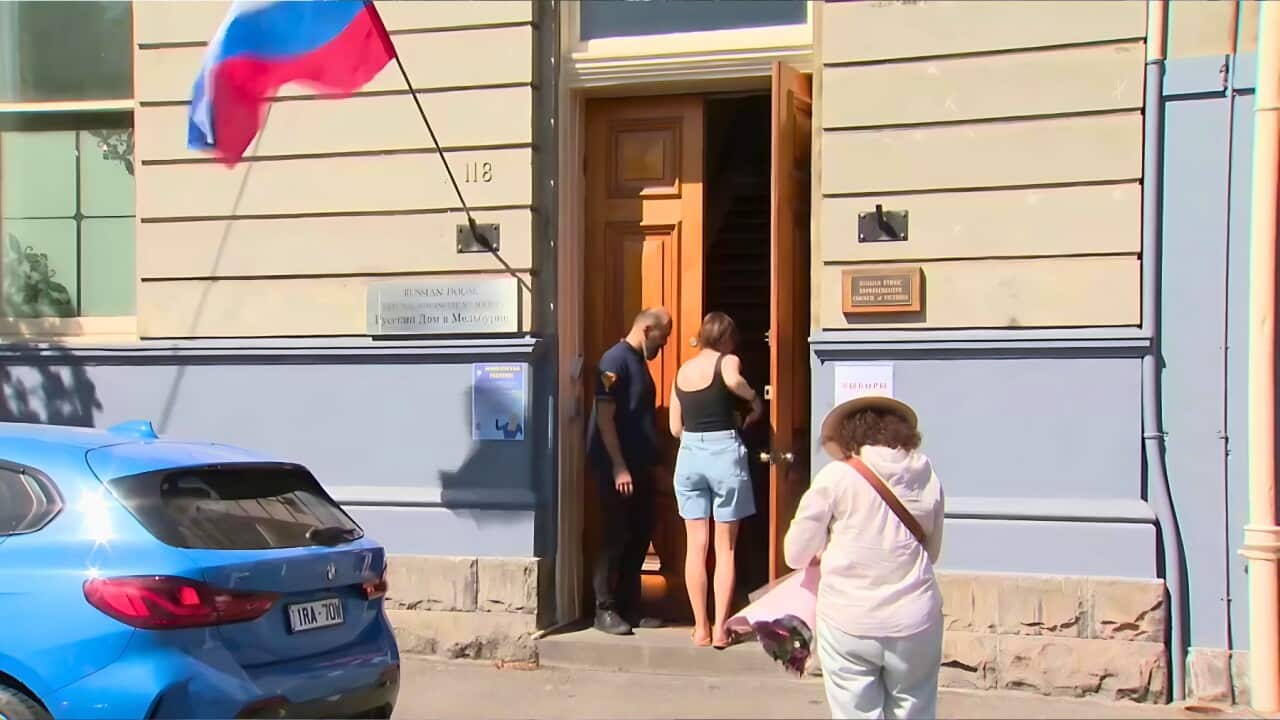TRANSCRIPT
He's held onto power for more than 20 years, but President Vladimir Putin is set to claim another six-year term.
Constitutional changes are setting the ex-KGB officer on the path to becoming Russia's longest reigning leader.
This is Peter Tesch, Australia's former ambassador to the Russian Federation from 2016 - 2019.
“An election of this nature is an election in name only. The political chicanery which characterised Vladimir Putin's highly personalised system of power and authority means he will undoubtedly be enthroned for another six years, and if he remains fit and well in 2030, he will be enthroned for another six years.”
At Russian House in Melbourne, members of the expat community cast their vote.
Some, like Viktor, are backing the President.
“I was born in USSR and when the USSR collapsed, it was beginning of 90s, quite a harsh time for Russia, at some point I thought the country will fall apart but fortunately for us, by my opinion, the team of Putin's came got it together back.”
Putinista is the name coined for those who support the Russian President.
A 2023 Lowy institute poll reveals that while 80 per cent of Australian respondents had no confidence in his leadership at all, seven per cent expressed some - or a lot - of confidence.
This is Dr Matthew Sussex, research fellow at the Strategic and Defence Studies Centre at the Australian National University:
“There are people who endorse his view that Russia is the custodian of conservative values, that its leading the fight against woke culture, that the West has become morally depraved, but in addition to that, I think there's just a sense that Putin is a contrarian who stands up to other established authorities.”
But for some supporters of Putin - like Irene - there's one priority on their mind.
“Russia, future of Russia, safety of Russia. In my point of view, he should be more aggressive, to finish this war, sooner.”
Dr Sussex again:
“The main issue is the war in Ukraine, although the Russian government doesn't refer to it as that, what we've got here is the hollowing out of Russia's political opposition and essentially the message being sent to Russians that there is no alternative to Putin.”
The sudden death of Russia's top opposition leader Alexei Navalny last month has not deterred those who share his politics.
His supporters, like Petr Kuzmin, Mr Navalny's official representative in Australia, is heeding his call to turn out at polling booths at midday in protest.
“I think it's a very important symbolic gesture, to show our compatriots in Russia, that we on the other side of the globe, still follow the events in Russia, we still want the best for Russia.”
Tending to a makeshift memorial for Mr Navalny in Sydney, members of the Russian community including Ekaterina Trushkina Rezende say it has been repeatedly destroyed.
“I see around me, Putin's sympathisers, and I want to ask them, why not take a chance to live there, try to exercise your rights, basic human rights, try to say what you think, try to do what you think is right - it's almost impossible there.”
One anti-Kremlin group called Svoboda Alliance, led by Ilya Fomin in Sydney, says it's in Putin's interest to sow discord in the diaspora.
“Russia wants to decrease the cohesion in different countries, because this makes it easier for Russia to make its aggressive actions.”
It's a system which opposition voices say plays directly into the President's hand.













